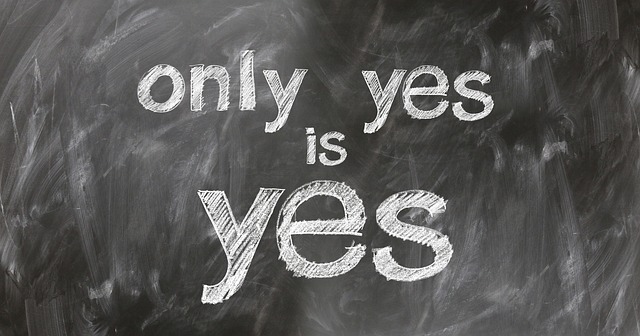Establishing Trust and Consent for Touch in a Breathwork Session
This article is available for sharing and incorporating into trainings, however always acknowledge the source when you use it.
It is important to understand that everyone’s journey is different and more touch during a session may be ok for you. This guidance is intented if you have difficulty in expressing no. You can change over time as you progress through one on one sessions. The majority of Breathworkers are intuitive and can tell when you’re having difficulty. Others I’m afraid are not.
Trusting your Breathworker is an essential component of your Breathwork journey. More importantly, when you have an in-person session and touch is offered by your Breathworker.
Trust is essential when you’re having a Breathwork session, because you’re in an altered state of consciousness and vulnerable to suggestion and touch. All ethical Breathworkers know this. For this reason, it is really important that your Breathworker discusses with you what kind of touch will be happening in the session and where on your body.
✔ Check if your Breathworker has a code of ethics they abide by.
Some Breathworkers don’t use touch with their clients. They will make this clear to you before the session.
Before you start a session make sure you are clear about:
-
Whether you have difficulty being touched
-
Is there anywhere on your body that is particularly sensitive to touch
-
You’re not really sure!
-
Check if you are being honest with yourself about being touched.
It is never acceptable for your Breathworker to touch your breasts, backside or genital area. Sexual caresses, touches or massages are not acceptable. When you go for a tantric massage, the masseur/masseuse discusses what is involved, and you give consent. Just to be clear – Breathwork isn’t tantric massage. If your Breathworker advertises Tantric Breathwork clarify what they mean by this, and what is involved.
It isn’t acceptable to have sexual relations with your Breathworker. If the urge is too much for you, stop having sessions, or wait until your training, or course of sessions is complete. This is because an energy dynamic arises between you both, any relations can cause entanglements and your Breathworker is in a place of power. Ethical Breathworkers know about these dynamics and won’t exploit them. If you are at a level where you both completely understand the lesson of entanglements and can take full responsibility for your decisions and actions, great! it is your free will choice.
Note that Professional Breathworker associations will not tolerate this conduct from their members.
Instances When a Breathworker May Ask to Touch You
-
If you are not breathing sufficiently into your chest/diaphragm your Breathworker may ask to place their hand appropriately on this area. This does not involve fondling or massaging.
-
Your Breathworker may ask to hold your ankles to keep you grounded.
-
Your Breathworker may offer a comforting touch by placing their hand on your shoulder softly or hold your hand.
-
Your Breathworker may ask to wipe a tear.
-
At the end of the session, some Breathworkers will ask you if you’d like them to put their hand on your back for support whilst you are in foetal position.
-
In some types of Breathwork your Breathworker may ask to touch energy points on your body.
-
It’s ok to ask for supportive touch during your session. If your Breathworker is not comfortable doing that then they will tell you.
-
Sometimes it feels good to have a hug. Some people like being hugged, others don’t. Decide what your preference is and be honest.
Consent is Crucial
Feeling safe during a Breathwork session is of paramount importance. You can request that the session is video recorded.
It is important to inform your Breathworker if you have a serious mental health problem, learning disability or a head injury. These affect your ability to make and communicate a decision.
Before your Breathworker touches you, it is best practice for them to ask your permission first. In doing this, they are gaining consent.
Trauma informed Breathworkers will also ask you more about how being touched affects you, because they understand the impact trauma has on a person.
Resource: An excellent model for communication between a Breathworker and client is “The Wheel of Consent,” by Dr Betty Martin1
Consent is like making a cup of tea.
You may be offered a cup of tea,
but you DON’T have to accept it or even drink it.
– Thames Valley Police #ConsentIsEverything Campaign
http://www.consentiseverything.com/
✔ A clear affirmative freely-given “yes” indicates consent.
✘ “I’m not really sure,” doesn’t mean consent.
✘ “No thank you,” doesn’t mean consent.
It is also important to understand that you can withdraw consent at any time during your Breathwork session. Even if you initially said yes, but you realise you don’t want it.
You can change your mind, and say something like:
“I’ve changed my mind about you touching me, I’d like you to stop”
“I don’t like being touched,”
“I don’t want you to touch me now.”
You may agree to be touched, and then find you get triggered and feel uncomfortable.
- If you have difficulty speaking then push your Breathworkers hand away.
- If you can’t speak and freeze, this will be evident to your Breathworker.
Be Honest With Yourself
Learning to be truly honest with yourself is part of your Breathwork journey because sometimes you may say yes, but actually, you mean no.
Instances when you say yes, but don’t really mean yes include:
-
You may want to please your Breathworker by saying yes, but actually you don’t want it.
-
You don’t want to cause a fuss.
-
You don’t want to be judged.
-
You don’t want to say no to an authority figure (your Breathworker)
-
You don’t say anything because you want your Breathworker to like you.
-
You want to blame them for doing something you didn’t want.
If any of these apply to you during a session, then tell your Breathworker. It is important to understand that your Breathworker will not get annoyed with you – because you don’t want to be touched.
Just Say No
If you don’t want to be touched, it is your absolute right to say no. Irrespective of how experienced or ‘popular’ your Breathworker is, it is vital that you speak up.
An ethical Breathworker will be understanding, and will not be persistent.
If you have previously experienced trauma and for whatever reason you kept silent, then you may have difficulty speaking up. A trauma informed Breathworker will notice that you don’t want to be touched and won’t push you. No means NO, silence or absence of a no – does not mean yes.
Your Breathworker will be observing your reaction and will check with you make sure you’re ok. It is always evident to a Breathworker if you freeze and when you can’t speak or move. They will ask you,
- “can you respond to me?”
- “are you ok?” or
- “can you tell me what is happening?”
During your induction interview, it is important that you mention any trauma you have experienced.
Difficult Reactions to Touch
When you are in a vulnerable state you may regress to feelings from when you were younger. You may or may not remember what happened. It is possible to regress to situations/memories from before you could speak. Breathworkers are aware of this.
Check in with your body, what sensations or reactions are you having? Difficult reactions include:
-
Your body freezes and it feels like you can’t move
-
You feel like you can’t speak
- You feel scared
-
You writhe
-
You flinch
- You frown
-
You scrunch your face up
-
You are startled
-
You defensively move your arm to protect yourself
-
You feel anxious, angry or sad
If you agree to be touched and then you feel uncomfortable when your Breathworker touches you, let your Breathworker know. Tell them, “stop touching me,” or “I don’t want you to touch me anymore.” It is always ok to change your mind.
Breathworkers understand that during a session – you are in an altered state of consciousness and even if you agree to be touched it may not be what you actually want.
Trauma informed Breathworkers understand that it takes time for some people to develop trust. They won’t push you or say, “but it will be good for you.”
When trust is built with your Breathworker, there is value and breakthroughs can be made, whilst being touched. This is a major reason for having 10 sessions with the same Breathworker. Building trust means that you feel safe in a judgement free, energetically held and supported space by your Breathworker.
You can change your mind if you said no to touch and then decide actually it would be great to have some support and you’d like your hand held, ask for it.
Misinterpreting Your Breathworker
Being completely honest with yourself about whether you can tolerate touch is incredibly important because misunderstandings can happen. What is acceptable for you may not be acceptable for me. Be clear about your boundaries, what is acceptable for you? If you’re not clear check out Dr Betty Martin’s work in the resources below.
Your Breathworker may be giving touch, or even there’s a tone to their voice which triggers you. When their intention is genuinely from a loving, kind space so look at what is really at play here?
- Do you find receiving difficult?
- Do you feel worthy of receiving?
- Do you have trauma related to touch?
- Do you think they are creepy?
- Do they remind you of someone?
If your Breathworker says no to touch and you are not ok with their ‘no.’ Dig deeper into your response:
- Are you offended?
- Do you feel rejected?
Taking responsibility for your projections is a big part of the Breathwork journey. Be careful not to read something more into a touch situation, than what it actually happened.
Breathworker Shadows
As long as we breathe we have stuff to work on. Your Breathworker is human and not perfect. Some Breathworkers think they’ve had 10 sessions.. they’ve been doing it for years… so they know it all! and see themselves as a guru. It’s really important to ask your Breathworker what personal development work they continue to do on themselves, do they regularly have sessions themselves?
Shadowy situations in a session to be aware of:
- Your Breathworker may be giving too much to earn validation and respect.
- They can’t handle when you say ‘no.’
- They don’t want to touch you because they’re scared of misinterpretation.
- They ‘think’ they know what you want and need, and it’s not what you want. Rather than being intuitively guided.
- They are attracted to you and continue giving you sessions. Energetically the waters can get muddied. Are they touching you for them? or touch you for you?
- They feel entitled to give to you.
- They think they can trigger you to get a response, without first gaining your trust in them or explaining how it helps. You are not given a choice.
Physical Abuse
Many people have experienced physical assault or trauma at some point during their life and may writhe when they are being touched. Ethical Breathworkers understand that a client may writhe, even when they offer a comforting touch. When a person has been attacked, it can be hard to know whom they can trust—especially if they were caught off guard. People who have been subject to physical abuse tend to blame themselves for the trauma. Your Breathworker may refer you to specialised therapist.
Sexual Abuse
One in three women and one in six men will experience some form of sexual assault in their lifetime. However, research has indicated that sexual assault is one of the most underreported crimes. There are many reasons that account for underreporting, including the guilt and stigma. Again, people who have been subject to sexual abuse tend to blame themselves for the trauma. Your Breathworker may refer you to specialised therapist.
Note from Ciara: in the middle of a session a client suddenly told me that she had been sexually abused by her uncle. She said she hadn’t ever told her husband or anyone at all. It was such a relief to have shared it with someone, because it had been a secret for 40 years.
Touch Sensitivity
Touch sensitivity is commonly reported by children or adults who experience sensory processing differences. Sensory integration trained occupational therapists would usually call this tactile sensory issue ‘tactile defensiveness‘. Sometimes they may use the term ‘over-responsivity to touch’ or touch sensitivity but the terms mean the same thing. To date, there is no confirmed cause of tactile sensitivity but it is frequently reported by autistic individuals. Your Breathworker may refer you to an Occupational Therapist for expert advice.
1. The Wheel of Consent by Dr Betty Martin
The Wheel of Consent was developed by Dr Betty Martin to ensure there is clear communication between the giver and the receiver of any therapy or profession that involves touch. Furthermore, the Wheel of Consent practices empower by giving you both choice and voice, and allowing both parties to clearly speak their needs. This model establishes clear agreements between the giver and receiver based on asking, “Who is Doing?” “Who is it For?” and “have we both consented to that?”
The motives of the person giving the session are clear.
-
I touch you the way you want = I am GIVING
This is ok for your Breathworker to do.
- I touch you the way I want = I am TAKING
This isn’t ok for your Breathworker to do.
The practices in this book will guide you in understanding in an embodied way how oftentimes we do not have choice—not without taking time to uncouple giving and receiving, doing and being done-to. We are trained in enduring unwanted touch. We live in intimacies, societies, and economies based on nonconsensual taking and over-giving. If we want to create safe-enough space to be brave and truly consensual in our relationships, we need to slow down and ask, “How do you want to be touched?”
– Dr Betty Martin
Consent is like making a cup of tea.
You may offered you a cup of tea, but you don’t have to accept it or even drink it.

Related Articles
The Leonard Orr Method of Rebirthing Breathwork
1970s Rebirthing Breathwork When Rebirthing Breathwork was first discovered the original Rebirthers used mouth breathing because they breathed through a snorkel in a hot tub. The original Rebirthers spread conscious connected breathing across the world and created...
The Isle of Avalon Returns
Storm Ciarán set the levels awash, the waters flowing through the landscape and the sight of the resplendent mystical isle inspires our imagination once again Set amidst marshland in the south-west of England is a mystical isle that has enchanted many religious and...
Samothrace Gateway to the Mysteries
A journey to Samothrace is a transformational journey both outwards and inwards. Samothrace (pronounced Samothraki) is a well kept secret in the Aegean. Thankfully, due to its lack of easily accessible sandy beaches, it has evaded mass tourism and this is one of its...



